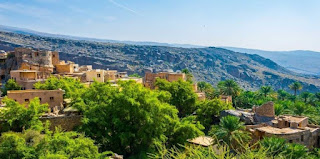Oman’s Green Data City to have full blockchain capacity in 2023
Oman’s Green
Data City, the first data center in Oman to obtain a crypto mining license will
have full blockchain capacity in 2023. The datacenter which is nestled in
Salalah region of Oman, harnesses its coastal location to utilize renewable
energy sources.
As per a report
in Oxford Business group, the project is set to receive more than $3.2 billion
as part of Vision 2040 and is expected to reach full blockchain capacity in
2023.
The MTCIT
announced in December 2022 that it secured OR150m ($390m) in investment from a
consortium of local and foreign financiers to develop a large-scale data center
at Green Data City. The investment is earmarked for the processing and hosting
data; and the adoption of distributed ledger technologies, blockchain and
financial technology.
In an interview
with Said Abdullah Al Mandhari ,CEO of Oman ICT Group, he noted that advanced
technologies and blockchain, in particular, have enormous potential to enhance Oman’s
long-term economic development, especially considering the current business
environment.
He added, “Artificial
intelligence (AI), big-data analytics, blockchain and the internet of things
(IoT) can boost efficiency and productivity in various sectors, such as finance,
education, health care and logistics. It will be important for the energy
sector in particular to adopt advanced technologies to increase productivity
and align with long-term sustainability standards.”
For his part, Blockchain
could be used to provide platforms that manage digital assets and conduct
transactions while reducing fraud risks, increasing transparency and
streamlining related operational processes. Blockchain would also be able to
expand inclusion in the financial ecosystem, as it enables crowdfunding and
peer-to-peer lending for small- and medium-sized enterprises.
The report
reiterates that the Oman regulator has announced
the development of a regulatory framework for virtual assets and virtual asset
service providers. This will help underpin the development of the digital asset
and financial technology industry in the sultanate.
By regulating
virtual assets, the Capital Market Authority aims to provide an alternative
financing and investment platform for issuers and investors alike, while
mitigating the risks associated with this asset class. The framework will cover
activities such as crypto-assets, tokens, crypto-exchanges and initial coin
offerings, among others.


Comments
Post a Comment